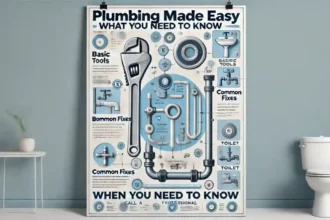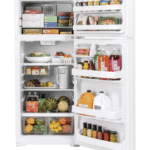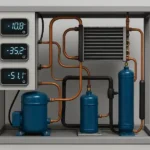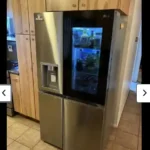Does your Honda Accord 2020 noise when braking reverse? This frustrating issue, often caused by worn brake pads, debris, or moisture, can disrupt your driving experience and even signal potential safety concerns. Left unchecked, it might lead to more significant damage and costly repairs. But don’t worry—this article provides clear steps to identify the cause and implement effective solutions to restore your vehicle’s smooth and quiet operation.
Common Causes of Honda Accord 2020 Noise When Braking Reverse
If your Honda Accord 2020 makes noise when braking in reverse, it can be both frustrating and concerning. Understanding the root cause is essential to solving the problem effectively. Below are some common reasons for reverse braking noise and what they mean for your car:
1. Worn-Out Brake Pads
Over time, brake pads wear down, and the metal backing may come into contact with the rotors, causing a squealing or grinding sound. This is one of the most frequent culprits for braking noise in reverse.
Solution: Check your brake pads and replace them if they are below the recommended thickness.
2. Accumulation of Debris
Brake systems are magnets for dust, dirt, and small debris, which can lodge between the brake pads and rotors. This debris often creates a high-pitched squeal or intermittent noise when braking in reverse.
Tip: Regular cleaning of your brakes can help prevent this issue.
3. Rust on Brake Rotors
When your car is parked overnight or in a damp environment, rust can form on the brake rotors. This rust can produce a scraping or squeaking noise, particularly during your first few reverse movements of the day.
Fix: Driving a short distance forward and applying the brakes lightly can help remove surface rust.
4. Insufficient Lubrication
Lack of lubrication on components like caliper pins or brake shims increases friction and can result in groaning or squealing noises. Lubricating these parts as part of routine maintenance can eliminate unnecessary noise.
5. Semi-Metallic Brake Pads
While durable, semi-metallic brake pads are known to produce more noise compared to ceramic or organic pads, especially during light braking or when reversing. If noise is persistent, consider upgrading to quieter brake pad materials.
6. Misaligned Calipers or Rotors
Calipers that are slightly out of alignment or rotors that have uneven surfaces can cause abnormal contact with the brake pads. This misalignment is often accompanied by a grinding or pulsating noise.
7. Environmental Factors
Temperature, moisture, and even parking on uneven surfaces can amplify brake noise. For instance, cold weather can make brake components contract slightly, leading to increased noise.
Step-by-Step Troubleshooting Guide: Fixing Honda Accord 2020 Noise When Braking in Reverse
If you’re dealing with brake noise in your Honda Accord 2020 when reversing, don’t worry. This step-by-step troubleshooting guide will help you pinpoint and fix the problem. Follow these easy steps to ensure your brakes are safe and noise-free.
1. Inspect the Brake Pads
Why It Matters: Worn or damaged brake pads are a common cause of noise when braking in reverse.
How to Check:
- Park your car on a flat surface and engage the parking brake.
- Remove the wheels to access the brake pads.
- Check the pad thickness. If it’s less than 3mm, it’s time for a replacement.
- Look for uneven wear or cracks that might cause noise.
2. Look for Debris in the Brake System
Why It Matters: Dust, dirt, or tiny metal fragments can lodge in the brakes and create a squealing sound.
How to Check:
- Use a flashlight to inspect the area around the brake rotors and pads.
- Clean the components with a can of brake cleaner or compressed air.
Pro Tip: Regular cleaning helps maintain smooth operation and prevents noise.
3. Test for Rust on the Rotors
Why It Matters: Rust buildup is a common issue, especially if your car has been parked for an extended period.
How to Check:
- Look for rust on the brake rotor surface.
- If rust is minor, drive slowly and lightly apply the brakes to remove it.
- For stubborn rust, consult a mechanic for resurfacing or rotor replacement.
4. Check for Proper Lubrication
Why It Matters: Lack of lubrication can cause unnecessary friction, leading to groaning or squealing noises.
How to Check:
- Inspect caliper pins and brake shims for dryness or wear.
- Apply a high-temperature brake grease to these components during routine maintenance.
5. Evaluate Brake Pad Material
Why It Matters: Certain brake pad materials, like semi-metallic pads, are noisier than ceramic or organic alternatives.
How to Check:
- Identify the type of brake pads installed. This is often listed in the product details or manual.
- Consider replacing noisy pads with quieter ceramic options.
6. Check Caliper and Rotor Alignment
Why It Matters: Misaligned components can lead to grinding noises and uneven braking performance.
How to Check:
- Inspect the calipers to ensure they’re seated properly.
- Spin the rotor manually and listen for scraping or grinding.
- If alignment seems off, consult a professional mechanic for adjustments.
7. Test Under Different Conditions
Why It Matters: Environmental factors can affect brake noise.
How to Check:
- Test the brakes after driving in wet or cold weather.
- Try braking in reverse on flat and uneven surfaces.
- If noise persists across conditions, the problem likely lies in the brake system.
Preventative Maintenance Tips
Maintaining your Honda Accord 2020’s braking system is key to preventing noise when braking in reverse. Follow these practical tips to keep your brakes in top condition:
Routine Brake Inspections
- Schedule professional inspections every 12,000 miles or annually, depending on your driving habits.
- Perform DIY checks monthly to monitor brake pad wear, rotor condition, and caliper alignment.
Cleaning Brake Components
- Regularly remove debris, dirt, and dust buildup from rotors and pads to prevent squeaks and grinding noises.
- Use brake cleaner sprays for thorough cleaning without damaging components.
Proper Lubrication
- Apply brake grease to shims, caliper pins, and other moving parts to minimize friction-related noise.
- Recommended products include silicone-based lubricants that withstand high heat and pressure.
Selecting the Right Brake Pads
- Invest in high-quality brake pads suited to your driving needs:
- Ceramic pads for smooth and quiet performance.
- Semi-metallic pads for heavy-duty or performance driving.
- High-quality pads reduce wear, noise, and the need for frequent replacements.
Environmental Awareness
- Avoid parking in wet or damp conditions to minimize rust buildup on rotors.
- Drive regularly to keep brake surfaces clean and functional, especially if you frequently drive in humid climates.
Comparison of Brake Pad Materials
Choosing the right brake pad is crucial for addressing noise issues in the Honda Accord 2020. Here’s a detailed breakdown of the three main types:
Ceramic Pads
- Pros: Extremely quiet, durable, and produce minimal brake dust.
- Cons: Higher initial cost compared to other materials.
- Best For: Everyday driving, where quiet and smooth braking is a priority.
Semi-Metallic Pads
- Pros: Affordable, great for performance driving, and excellent heat dissipation.
- Cons: Tend to produce more noise and wear down rotors faster.
- Best For: Drivers who need enhanced braking power for heavier or more aggressive use.
Organic Pads
- Pros: Environmentally friendly, quiet operation, and cost-effective.
- Cons: Short lifespan and less effective under extreme braking conditions.
- Best For: Light-duty, city driving.
Comparison Table
| Brake Pad Type | Noise Level | Durability | Cost | Best Use Cases |
| Ceramic | Low | High | Higher | Everyday driving, long-lasting performance |
| Semi-Metallic | Medium | Medium-High | Moderate | Performance or heavy-duty use |
| Organic | Low | Low | Low | Light-duty, eco-friendly driving |
By implementing these preventative measures and understanding the differences in brake pad materials, you can extend the lifespan of your braking system and enjoy a quieter, smoother ride. Take charge of your Honda Accord 2020’s brake maintenance today
Real-Life Examples and User Testimonials
Case Studies
One Honda Accord 2020 owner reported a persistent squealing noise when braking in reverse after heavy rain. The cause? Rust buildup on the rotors from overnight moisture. A quick rotor cleaning and routine maintenance resolved the issue, restoring quiet operation.
Another driver noticed a grinding noise only during reverse braking. Upon inspection, worn brake pads were the culprit. Replacing the pads with high-quality ceramic ones eliminated the noise and improved overall braking performance.
Trends from Online Communities
Forums like Reddit and DriveAccord are buzzing with discussions on Honda Accord 2020 noise when braking reverse. Many users highlight moisture, debris, and cheap aftermarket brake pads as frequent culprits. Insights from these platforms reveal common DIY fixes, such as rotor cleaning or applying anti-squeal lubricant, that worked for fellow Accord owners.
What Drivers Have Tried
Honda drivers have experimented with:
- Switching to premium brake pads to minimize noise.
- Using brake cleaner to remove accumulated dirt and rust.
- Ensuring proper lubrication of calipers and shims. Most found that addressing these simple issues effectively reduced or eliminated reverse brake noise.
When to Consult a Professional
Signs Your Brakes Need Immediate Attention
- Persistent grinding or groaning noises that don’t improve after DIY fixes.
- Illuminated brake system warning lights on your Honda Accord dashboard.
- A noticeable reduction in braking efficiency or responsiveness.
What to Expect from a Mechanic
Professionals will:
- Conduct a full inspection of your brake system, including pads, rotors, and calipers.
- Diagnose advanced issues, such as warped rotors or failing ABS sensors.
- Offer cost-effective solutions, such as resurfacing rotors or replacing components.
Typical Costs: Rotor resurfacing may cost $50–$100 per rotor, while brake pad replacement ranges from $150–$300, depending on the materials.
Conclusion
Addressing Honda Accord 2020 noise when braking reverse is essential for maintaining your car’s safety and performance. Common causes include worn pads, debris, and moisture, all of which can be resolved with regular maintenance and proper care.
Ignoring brake noise can lead to costly repairs and unsafe driving conditions. Tackling the issue now ensures peace of mind and prevents further complications.
Take charge of your car’s health today. Follow our DIY steps or consult a trusted mechanic to resolve reverse brake noise and keep your Honda Accord running smoothly. Share your experience or tips in the comments below to help other drivers!















